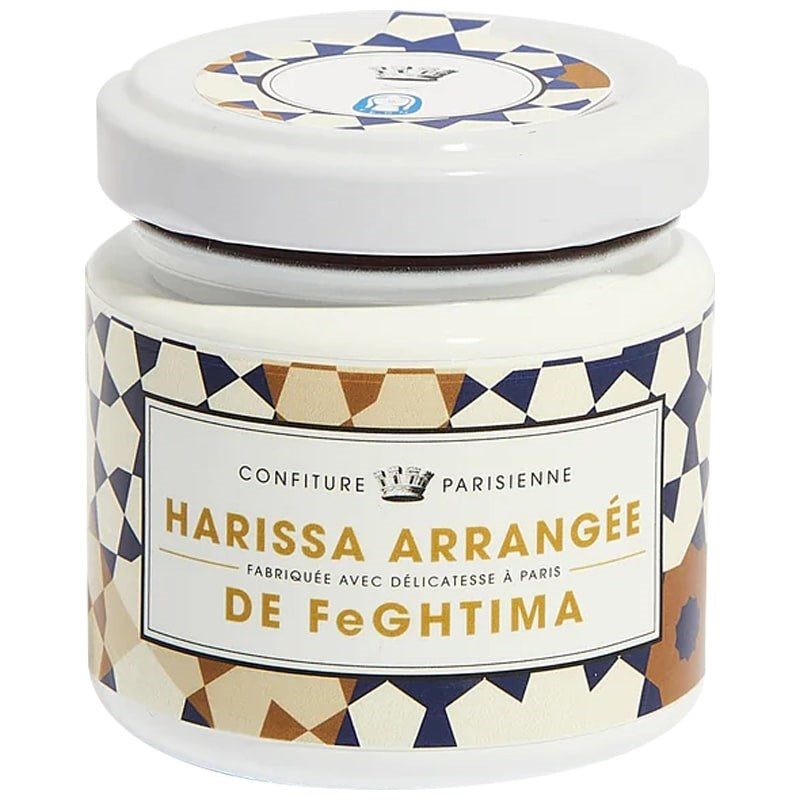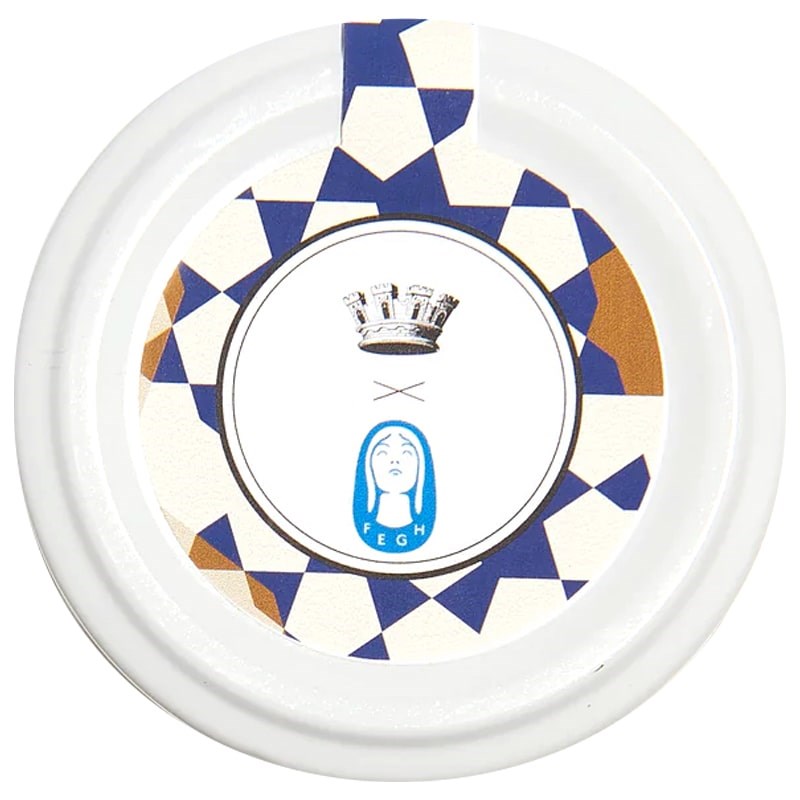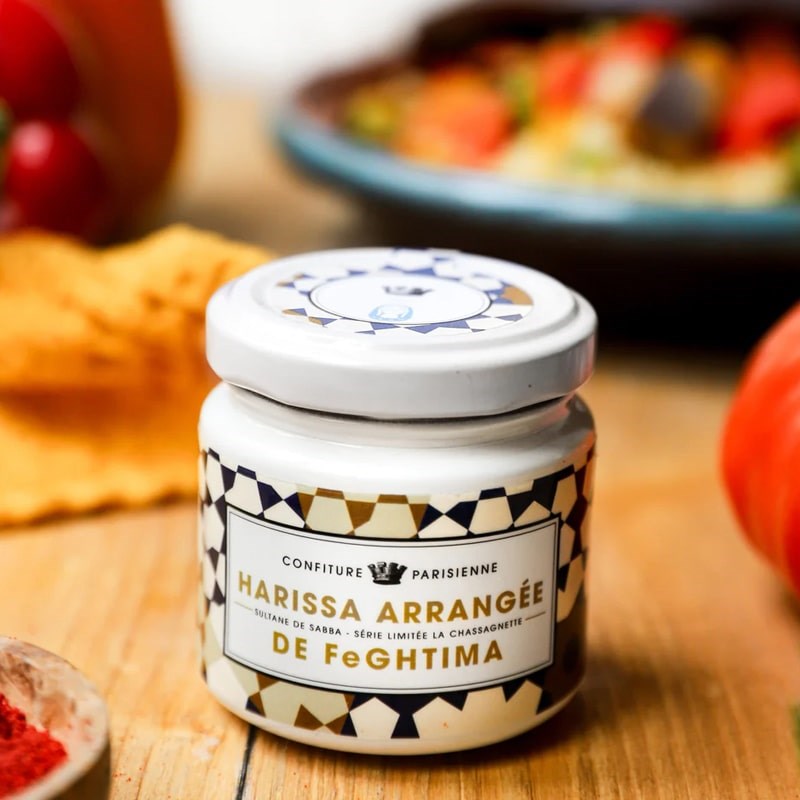


Harissa Jam x FeGH
SKU: 47948
There's nothing like a trip to the sun to recharge your batteries. Confiture Parisienne leaves the grayness of the Paris region and sets down its bags in the sublime land of deserts and oases.
To guide us on our journey, who better than FeGH ( aka Frédérick Ernestine Grasser Hermé)? Winner of the first special jury prize at the 2008 Couscous Festival, she revealed the secret of the Tunisian red gold: harissa. But that's not all. On the pages of her book, she offers her expert advice on how to make an exceptional couscous.
SALTY: With some kinds of couscous, or with kesra (a traditional Algerian bread made of semolina), like a jam.
These statements have not been evaluated by the Food and Drug Administration. This product is not intended to diagnose, treat, cure, or prevent any disease.
Ingredients may be subject to change. The most accurate and up to date product ingredient list can also found on the product packaging.
Since ancient times, foodies have developed various recipes for preserving fruits by cooking them with wine or honey.
But to taste jams as we know them, you have to wait for the first crusades and the introduction of cane sugar from the Arab world. This luxury food allows the transformation of fruit into jam, only reserved for royal tables. At the beginning of the 19th century, the production of beet sugar democratized this product. In Paris, many jam makers opened their stalls and supplied themselves with fruit from the surrounding orchards.





